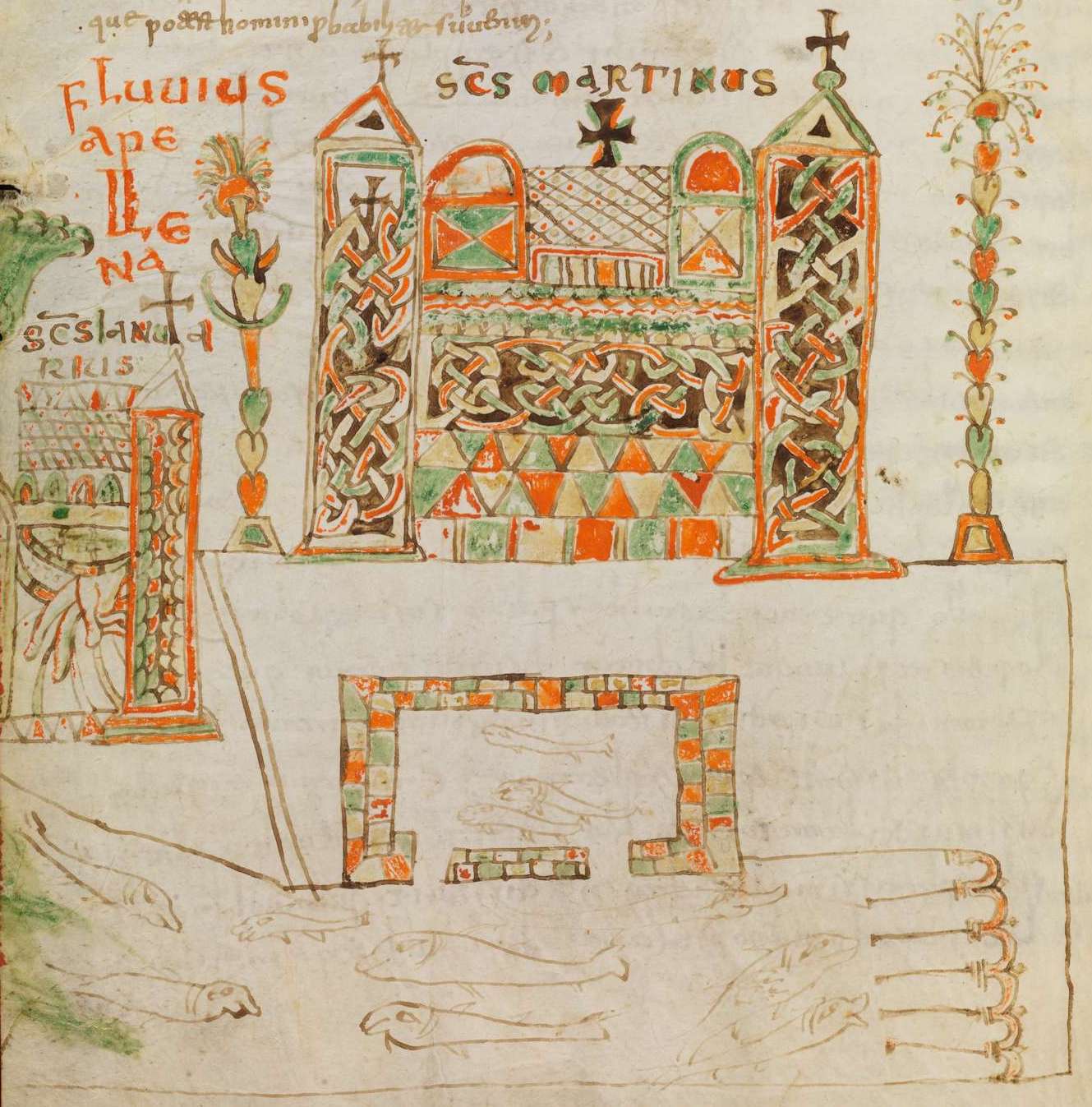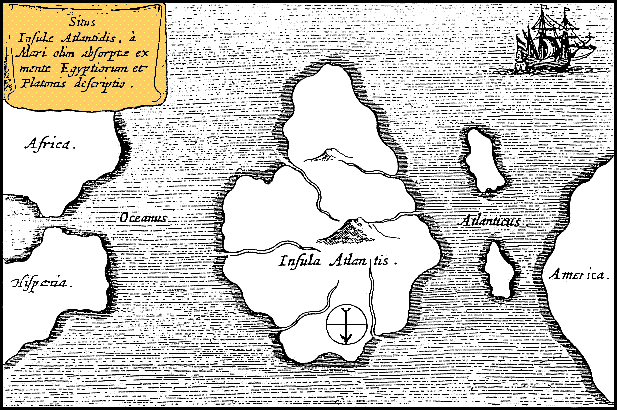|
Albinus (philosopher)
Albinus ( el, Ἀλβῖνος; fl. c. 150 AD) was a Platonist philosopher, who lived at Smyrna, and was teacher of Galen. A short tract by him, entitled ''Introduction to Plato's dialogues'', has survived. From the title of one of the extant manuscripts we learn that Albinus was a pupil of Gaius the Platonist. The original title of his work was probably ''Prologos'', and it may have originally formed the initial section of notes taken at the lectures of Gaius. After explaining the nature of the Dialogue, which he compares to a Drama, the writer goes on to divide the Dialogues of Plato into four classes, logical, critical, physical, ethical, and mentions another division of them into Tetralogies, according to their subjects. He advises that the Alcibiades, Phaedo, Republic, and Timaeus, should be read in a series. Some of Albinus's fame is attributed to the fact that a 19th-century German scholar, J. Freudenthal, attributed Alcinous's ''Handbook of Platonism'' to Albinus. This ... [...More Info...] [...Related Items...] OR: [Wikipedia] [Google] [Baidu] |
Middle Platonism
Middle Platonism is the modern name given to a stage in the development of Platonic philosophy, lasting from about 90 BC – when Antiochus of Ascalon rejected the scepticism of the new Academy – until the development of neoplatonism under Plotinus in the 3rd century. Middle Platonism absorbed many doctrines from the rival Peripatetic and Stoic schools. The pre-eminent philosopher in this period, Plutarch (c. 45–120), defended the freedom of the will and the immortality of the soul. He sought to show that God, in creating the world, had transformed matter, as the receptacle of evil, into the divine soul of the world, where it continued to operate as the source of all evil. God is a transcendent being, who operates through divine intermediaries, which are the gods and daemons of popular religion. Numenius of Apamea (c. 160) combined Platonism with neopythagoreanism and other eastern philosophies, in a move which would prefigure the development of neoplatonism. His ... [...More Info...] [...Related Items...] OR: [Wikipedia] [Google] [Baidu] |
Jacob Freudenthal
Jacob Freudenthal (20 June 1839 – 1 June 1907) was a German philosopher. He was born at Bodenfelde, Hanover and died at Schreiberhau. Freudenthal received his education at the universities of Breslau and Göttingen, and at the rabbinical seminary of Breslau. After graduating from the University of Göttingen (1863) he became teacher of the in Wolfenbüttel (1863–64), whence be removed to Breslau as teacher in the rabbinical seminary there, a position which he resigned in 1888. In 1875, he became lecturer in philosophy at the University of Breslau; in 1878 he was elected assistant professor, in 1888 professor, of philosophy. He was a member of the senate of the university in 1894–96, and dean of the philosophical faculty in 1898–99. The Prussian Academy of Science sent him to England in 1888 to study English philosophy, and in 1898 to the Netherlands to research the life of Spinoza. The results of these voyages were his "Beiträge zur Englischen Philosophie", in the "Arc ... [...More Info...] [...Related Items...] OR: [Wikipedia] [Google] [Baidu] |
George Burges
George Burges (; 1786 – 11 January 1864) was an English classical scholar who published translations of the works of Euripides, Aeschylus, Sophocles, and Plato. Biography Burges was born in Bengal, India, and was probably the son of Thomas Burges (d.1799) of Calcutta. He was educated at Charterhouse School and Trinity College, Cambridge, taking his B.A. degree in 1807 and obtaining one of the members' prizes both in 1808 and 1809 before becoming an M.A. in 1810. He stayed up at Cambridge and became a most successful coach and tutor. He had a great reputation as a Greek scholar, and was a somewhat acrimonious critic of rival scholars, especially Bishop Blomfield. Subsequently, he fell into embarrassed circumstances through injudicious speculation, and in 1841 a civil list pension of £100 per annum was bestowed upon him. He died at Ramsgate, on 11 January 1864. Burges was a man of great learning and industry, but too fond of introducing arbitrary emendations into the text of ... [...More Info...] [...Related Items...] OR: [Wikipedia] [Google] [Baidu] |
Geometry
Geometry (; ) is, with arithmetic, one of the oldest branches of mathematics. It is concerned with properties of space such as the distance, shape, size, and relative position of figures. A mathematician who works in the field of geometry is called a ''geometer''. Until the 19th century, geometry was almost exclusively devoted to Euclidean geometry, which includes the notions of point, line, plane, distance, angle, surface, and curve, as fundamental concepts. During the 19th century several discoveries enlarged dramatically the scope of geometry. One of the oldest such discoveries is Carl Friedrich Gauss' ("remarkable theorem") that asserts roughly that the Gaussian curvature of a surface is independent from any specific embedding in a Euclidean space. This implies that surfaces can be studied ''intrinsically'', that is, as stand-alone spaces, and has been expanded into the theory of manifolds and Riemannian geometry. Later in the 19th century, it appeared that geometries ... [...More Info...] [...Related Items...] OR: [Wikipedia] [Google] [Baidu] |
Music
Music is generally defined as the art of arranging sound to create some combination of form, harmony, melody, rhythm or otherwise expressive content. Exact definitions of music vary considerably around the world, though it is an aspect of all human societies, a cultural universal. While scholars agree that music is defined by a few specific elements, there is no consensus on their precise definitions. The creation of music is commonly divided into musical composition, musical improvisation, and musical performance, though the topic itself extends into academic disciplines, criticism, philosophy, and psychology. Music may be performed or improvised using a vast range of instruments, including the human voice. In some musical contexts, a performance or composition may be to some extent improvised. For instance, in Hindustani classical music, the performer plays spontaneously while following a partially defined structure and using characteristic motifs. In modal jazz ... [...More Info...] [...Related Items...] OR: [Wikipedia] [Google] [Baidu] |
Latin
Latin (, or , ) is a classical language belonging to the Italic branch of the Indo-European languages. Latin was originally a dialect spoken in the lower Tiber area (then known as Latium) around present-day Rome, but through the power of the Roman Republic it became the dominant language in the Italian region and subsequently throughout the Roman Empire. Even after the fall of Western Rome, Latin remained the common language of international communication, science, scholarship and academia in Europe until well into the 18th century, when other regional vernaculars (including its own descendants, the Romance languages) supplanted it in common academic and political usage, and it eventually became a dead language in the modern linguistic definition. Latin is a highly inflected language, with three distinct genders (masculine, feminine, and neuter), six or seven noun cases (nominative, accusative, genitive, dative, ablative, and vocative), five declensions, four verb conjuga ... [...More Info...] [...Related Items...] OR: [Wikipedia] [Google] [Baidu] |
Cassiodorus
Magnus Aurelius Cassiodorus Senator (c. 485 – c. 585), commonly known as Cassiodorus (), was a Roman statesman, renowned scholar of antiquity, and writer serving in the administration of Theodoric the Great, king of the Ostrogoths. ''Senator'' was part of his surname; not his rank. He also founded a monastery, Vivarium, where he spent the last years of his life. Life Cassiodorus was born at Scylletium, near Catanzaro in Calabria, Italy. Some modern historians speculate that his family was of Syrian origin based on his Greek name. His ancestry included some of the most prominent ministers of the state extending back several generations. His great-grandfather held a command in the defense of the coasts of southern Italy from Vandal sea-raiders in the middle of the fifth century; his grandfather appears in a Roman embassy to Attila the Hun, and his father (who bore the same name) served as ''comes sacrarum largitionum'' and ''comes rerum privatarum'' to Odovacer and as Praetorian ... [...More Info...] [...Related Items...] OR: [Wikipedia] [Google] [Baidu] |
Boethius
Anicius Manlius Severinus Boethius, commonly known as Boethius (; Latin: ''Boetius''; 480 – 524 AD), was a Roman senator, consul, ''magister officiorum'', historian, and philosopher of the Early Middle Ages. He was a central figure in the translation of the Greek classics into Latin, a precursor to the Scholastic movement, and, along with Cassiodorus, one of the two leading Christian scholars of the 6th century. The local cult of Boethius in the Diocese of Pavia was sanctioned by the Sacred Congregation of Rites in 1883, confirming the diocese's custom of honouring him on the 23 October. Boethius was born in Rome a few years after the collapse of the Western Roman Empire. A member of the Anicii family, he was orphaned following the family's sudden decline and was raised by Quintus Aurelius Memmius Symmachus, a later consul. After mastering both Latin and Greek in his youth, Boethius rose to prominence as a statesman during the Ostrogothic Kingdom: becoming a senator by a ... [...More Info...] [...Related Items...] OR: [Wikipedia] [Google] [Baidu] |
Alcinous (philosopher)
Alcinous (Greek: ''Alkinoos'') was a Middle Platonist philosopher. He probably lived in the 2nd century AD,"Alcinous fits most comfortably into a period bounded by the writings of Plutarch on the one hand, and Galen and Alexander of Aphrodisias on the other, with Apuleius, Albinus, Atticus, Numenius, the Peripatetic Aspasius, ... and Maximus of Tyre as approximate contemporaries." John Dillon, 1993, ''Alcinous, The Handbook of Platonism'', page xiii. Oxford. although nothing is known about his life. He is the author of ''The Handbook of Platonism'', an epitome of Middle Platonism intended as a manual for teachers. He has, at times, been identified by some scholars with the 2nd century Middle Platonist Albinus. Writings Alcinous is the author of work called ''The Handbook of Platonism'' (, also ; la, De doctrina Platonis), one of the few surviving works from the Middle Platonist period (c. 90 BC – 250 AD). The book contains 36 chapters which cover topics ranging from l ... [...More Info...] [...Related Items...] OR: [Wikipedia] [Google] [Baidu] |
Timaeus (dialogue)
''Timaeus'' (; grc-gre, Τίμαιος, Timaios, ) is one of Plato's dialogues, mostly in the form of long monologues given by Critias and Timaeus, written 360 BC. The work puts forward reasoning on the possible nature of the physical world and human beings and is followed by the dialogue ''Critias''. Participants in the dialogue include Socrates, Timaeus, Hermocrates, and Critias. Some scholars believe that it is not the Critias of the Thirty Tyrants who appears in this dialogue, but his grandfather, who is also named Critias. It has been suggested from some traditions (Diogenes Laertius (VIII 85) from Hermippus of Smyrna (3rd century BC) and Timon of Phlius ( 320 – 235 BC)) that ''Timaeus'' was influenced by a book about Pythagoras, written by Philolaus, although this assertion is generally considered false. Introduction The dialogue takes place the day after Socrates described his ideal state. In Plato's works, such a discussion occurs in the ''Republic''. Socrates fe ... [...More Info...] [...Related Items...] OR: [Wikipedia] [Google] [Baidu] |






